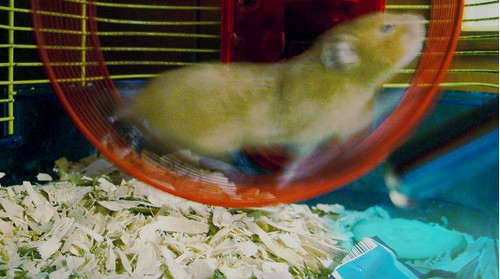Is the cult of busyness in danger of dying out at last in the wake of the pandemic? Being extremely busy has been a status symbol for many years and social media have been full of busy people proudly telling everyone else how busy they are. It's a lifestyle that is reflected and spurred by popular culture presenting role models who effortlessly combine extremely demanding careers with family, ambitious building and renovation projects, vibrant social life, hobbies and work for charity. Holidays are as filled with activity as working days and just hanging around doing nothing special is not an option. This stress is not always due to pressure from employers, much of it is self-imposed in an attempt to prove your worth and gain approval. Social media have flourished as a channel for this.
The potential demise of this frenzied lifestyle is discussed in an article by Shayla Love in Vice magazine, The cult of busyness. Busyness is full of paradoxes.Those who are most proud of their busyness are those who could easily afford to take it easy but seek status by being constantly booked up and stressed. Those who are poorer don't see their lack of time as a status symbol - for them it's the only way to make ends meet in a gig economy where one job is never enough.
Busyness is a powerful social signal, though a somewhat counterintuitive one. At the turn of the 20th century, economists predicted that the ultimate symbol of wealth and success would be leisure—showing others that you were so successful that you could abstain from work. Instead, the opposite occurred. It’s not free time, but busyness, that gestures to a person’s relevance.
The education sector is particularly afflicted with busyness. In higher education the pressure to design and run courses as well as conducting research, writing articles and applying for funding means that many are putting in far more working hours than they will ever be paid for. Sadly many posts in social media glorify this kind of lifestyle and create a culture of guilt among those who can't match the extreme productivity of those who post that over the weekend they have graded so many exam papers, applied for research funding, written a new book chapter and had a fun day out with the family. Stress creates stress and becomes a hamster wheel that we can't escape from.
The past year has forced many to reconsider their busyness. When you work from home and there are no events or meetings to rush to there is suddenly more time available. You realise how much of your working days were spent in transit to meetings or classes. The article describes the process of deceleration where the number of busy activities is drastically reduced and there is more time to focus on what's left. Many people realise that they don't want to go back to commuting to the office, drinking coffee on the go or eating lunch in front of a screen.
I can't see us completely abandoning busyness, but a slower lifestyle has at least gained approval and there are more status updates in social media showing more relaxing activities like walks in the country, gardening or other hobbies. Even when we return to our offices I suspect there will be new routines and many of us will not want to go there every day. Pressures will remain but if we can at least think twice before we post updates boasting of how many tasks we have completed today that will be an improvement. Think what effect your update will have on others and tag down a bit. Share your good moments but not your stress.
Will these changes stick? Or will we go right back to worshipping busyness at the cost of everything else? Bellezza isn’t as optimistic about deceleration replacing busyness as the leading social status signal, but she acknowledged that when she started studying busyness, there wasn’t any discussion about deceleration at all. She’s glad it’s entered the conversation, and tries to practice deceleration in her own life.
A final thought. This phenomenon is of course available to people in well-paid stable jobs that allow the freedom to choose how they work. Most people don't have the option. We need to remember that before we generalise about the future of work. But that's another topic.

No comments:
Post a Comment
Note: Only a member of this blog may post a comment.